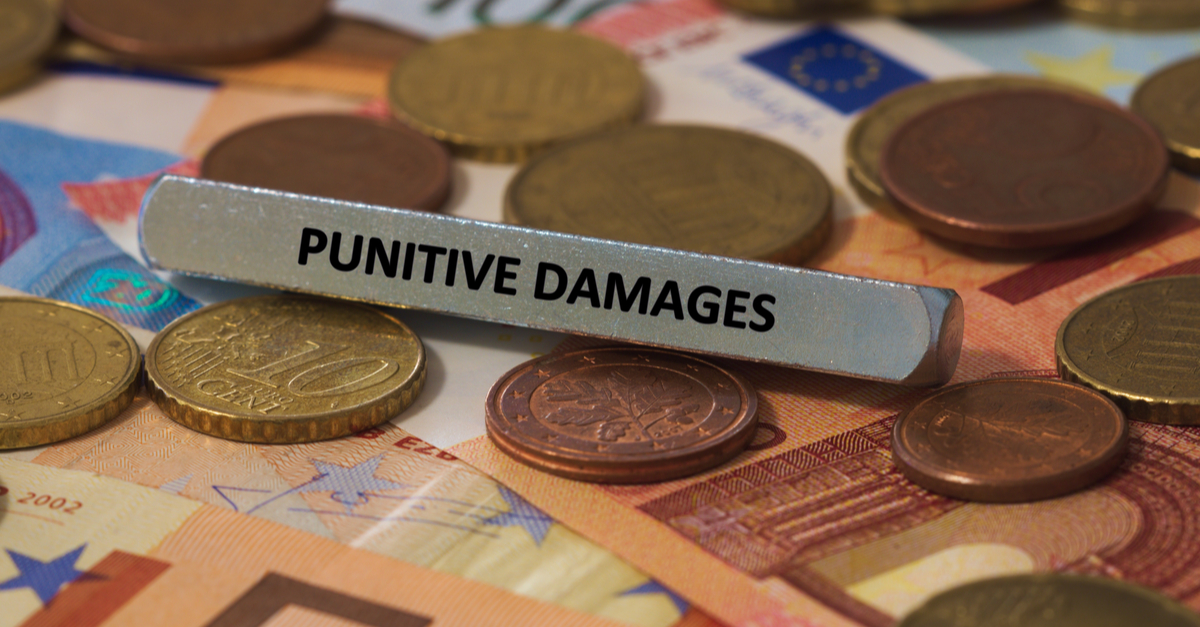Florida Supreme Court: Punitive Damages Orders Will Become Immediately Appealable Following Amendment to Appellate Rules
Florida Supreme Court: Punitive Damages Orders Will Become Immediately Appealable Following Amendment to Appellate Rules
On January 6, 2021, the Florida Supreme Court adopted an amendment to Florida Rule of Appellate Procedure 9.130 authorizing immediate appeals of orders granting or denying leave to seek punitive damages.[1] Under this amendment, such orders expressly become non-final, and eligible for interlocutory appeal. The amendment takes effect on April 1, 2022 and represents a significant shift for plaintiffs and defendants alike.
In Florida, punitive damages are not immediately available to plaintiffs or counter-plaintiffs. Florida Statute § 768.72 prohibits claims for punitive damages absent a “there is a reasonable showing by evidence in the record or proffered by the claimant which would provide a reasonable basis for recovery of such damages.” In other words, parties seeking add punitive damage claims may only do so after submitting a sufficient evidentiary proffer. The proffer must contain evidence of the non-moving party’s willful misconduct or gross negligence. Once leave is granted, the party against whom punitive damages are sought may be required to disclose sensitive—and previously protected—financial information in discovery. This is of course in addition to being exposed to significantly increased financial liability.
Previously, parties had no recourse to immediately appeal any order granting or denying leave to amend a complaint or counter-claim. Challenges were appropriate only conclusion of the litigation and entry of final judgment.[2] Orders concerning leave to amend for punitive damages were no exception. Moreover, it was only in the 1995 decision of Globe Newspaper Co. v. King that the Florida Supreme Court made certirorari review available to orders granting leave to amend for punitive damages.[3]
The Globe decision, however, narrowed the lens under which Florida’s appellate courts could review orders granting leave to seek punitive damages. Under Globe,certiorari jurisdiction with respect to these orders began and ended at whether the trial court followed the procedural requirements set forth in the punitive damages statute. Effectively, appellate courts were confined to reviewing only whether the party claiming punitive damages provided evidence to the trial court. Appellate courts operating within certiorari jurisdiction were barred from reviewing whether the trial court erred in accepting or rejecting that evidence as a reasonable basis for recovery of punitive damages. This standard of review is exacting and leaves appellate courts powerless to so much as correct an abuse of discretion.
With this latest amendment to Rule 9.130, litigants are free to appeal trial court orders on leave to amend for punitive damages without seeking a writ of certiorari. This begs the question, what under what standard will these orders be reviewed?
The Florida Supreme Court’s January 6, order amending Rule 9.130 is unclear as to what changes, if any, are in store for appellate review of orders on amendment for punitive damages. Limited precedent may provide an answer. In Holmes v. Bridgestone/Firestone, Inc.[4], the Florida Fourth District Court of Appeals heard an appeal on a trial court’s denial of a motion to amend for punitive damages not on certiorari, but by way of its discretionary jurisdiction. The Holmes court noted that no other Florida court had addressed the appropriate standard of review because most, if not all, other appeals concerning amendment for punitive damages were governed by Globe. Ultimately, the Holmes court held that the question of whether to allow amendment for punitive damages was a question of law and reviewed the issue de novo.
The standard of review set forth in Holmes has been adopted by Florida’s First, Second, and Fifth District Courts of Appeal.[5],[6][HM1]
While many litigants may applaud this particular amendment to Rule 9.130, the amendment is not without its critics. Chief among them is the Florida Supreme Court’s own Justice Jorge Lagarba, who penned an impassioned dissent. Justice Lagarba asserts that “the unfortunate consequence of this drastic change in appellate procedure will be unnecessary and unwarranted delays in civil actions with claims for punitive damages.” He expressed particular concern for personal injury plaintiffs, whose “claims for much needed medical and economic relief will stall until the question of punitive damages is resolved.” Justice Lagarba also noted that Florida is now the only state with a rule permitting interlocutory appeals of orders on amendment for punitive damages. To the extent that proponents of financial privacy feel this amendment provides necessary protection, Justice Lagarba posits that a confidentiality order serves a disclosing party facing punitive damages just as well.
It will be some time before we know the lasting impacts of this amendment, but one thing is for certain: on April 1, 2022, the landscape of punitive damages in Florida will be fundamentally changed. Amendment for punitive damages has long used as a sword to leverage favorable settlements. Now, that edge has been dulled.
[1] In re: Amendment to Florida Rule of appellate procedure 9.130, No. SC21-129, 2022 WL 57943 (Fla. Jan. 6, 2022)
[2] Traveler v. Steiner Transocean Ltd., 895 So. 2d 1191, 1192 (Fla. 3d DCA 2005); Hochstadt v. Sanctuary Homeowners Ass’n, 882 So.2d 1094, 1096 (Fla. 4th DCA 2004); Faulk v. Air Prods. & Chems., Inc., 798 So.2d 820, 821 (Fla. 1st DCA 2001).
[3] Globe Newspaper Co. v. King, 658 So. 2d 518 (Fla. 1995)
[4] Holmes v. Bridgestone/Firestone, Inc., 891 So. 2d 1188 (Fla. 4th DCA 2005).
[5] See generally GEICO Gen. Ins. Co. v. Hoy, 136 So. 3d 647 (Fla. 2d DCA 2013); Tiger Point Golf & Country Club v. Hipple, 977 So. 2d 608 (Fla. 1st DCA 2007); Est. of Williams ex rel. Williams v. Tandem Health Care of Fla., Inc., 899 So. 2d 369 (Fla. 1st DCA 2005); Est. of Despain v. Avante Grp., Inc., 900 So. 2d 637 (Fla. 5th DCA 2005).
[6] The Fifth District Court of Appeal’s decision to review orders granting or denying amendment for punitive damages de novo recognizes Holmes, but reaches its conclusion through different reasoning.







